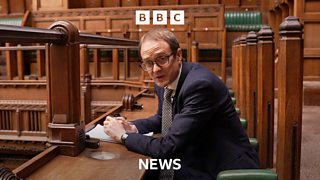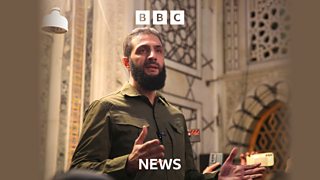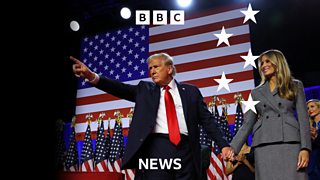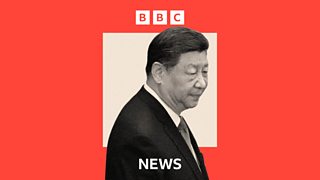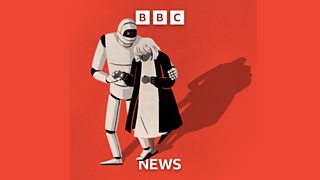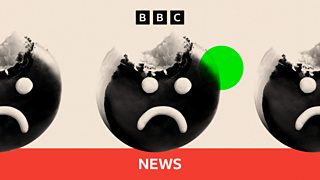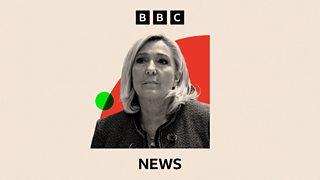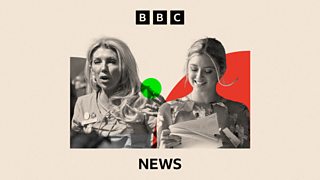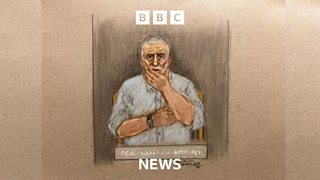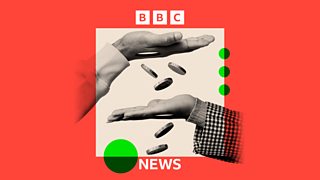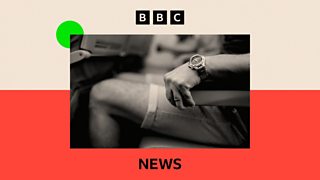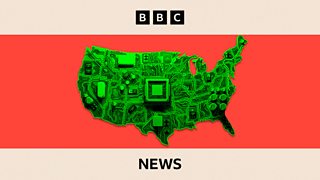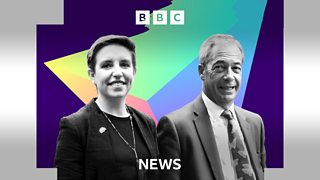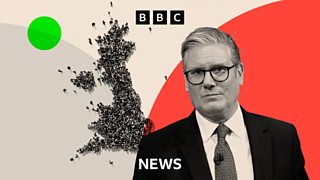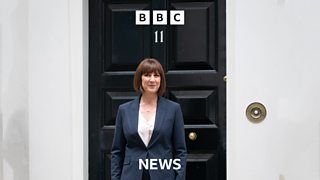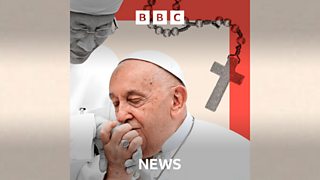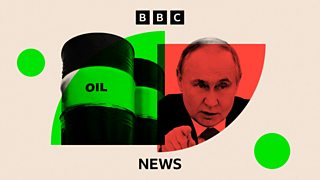Reporter Reads Episodes Episode guide
- All
- Available now (211)
- Next on (0)
-
![]()
How the war in Ukraine could come to a close in 2025
Could 2025 be the year when the conflict in Ukraine finally ends?
-
![]()
Chris Mason on why 2025 in politics could be 'lively'
The ÃÛÑ¿´«Ã½'s political editor looks back at 2024 and considers what 2025 could bring.
-
![]()
Why luxury cheddar is being targeted by criminals
Organised crime gangs are thought to be behind a rising number of cheese thefts.
-
![]()
How Jaguar lost its way
ÃÛÑ¿´«Ã½ international business correspondent Theo Leggett on the car maker's re-invention.
-
![]()
Gisèle Pelicot: How an ordinary woman shook attitudes to rape
ÃÛÑ¿´«Ã½ correspondent Andrew Harding on a trial that has reshaped French society.
-
![]()
How Syria's rebel leader reinvented himself
ÃÛÑ¿´«Ã½ Monitoring's Mina Al-Lam on his journey from jihadist leader to national politician.
-
![]()
Five words that changed the Sara Sharif murder trial
ÃÛÑ¿´«Ã½ Correspondent, Helena Wilkinson, on the Sara Sharif murder trial.
-
![]()
Anthony Zurcher: Result hands Trump free rein
Four years after losing to Joe Biden, Donald Trump's movement is back and more durable.
-
![]()
Why do concert tickets cost so much?
The ÃÛÑ¿´«Ã½'s music correspondent Mark Savage on what's pushing up prices for music fans.
-
![]()
Xi's real test is not Trump's trade war
The real battleground of the current trade war might be China's domestic economy.
-
![]()
Would you wear perfume made from fatbergs?
Fatbergs turned into perfume - inside Britain's new industrial revolution.
-
![]()
Would you trust a robot to look after you in old age?
Could robots be the solution to helping older people with their care?
-
![]()
Would taxpayers ever be asked to save a failing bank again?
Nearly two decades on from the 2008 financial crisis, could history repeat itself?
-
![]()
Will we ever know the truth about ultra-processed foods?
The ÃÛÑ¿´«Ã½'s health reporter Philippa Roxby says experts can't agree on how they affect us.
-
![]()
Will France's far right take revenge after Le Pen ban?
Andrew Harding reveals the feverish mood among the nation's politicians.
-
![]()
Will diversity backlash lead to more 'masculine energy' at work?
Some UK employees fear intolerant attitudes at work could become more normalised.
-
![]()
Why we struggle to protect kids from conspiracy theorist parents
The inquest into the death of 23-year-old Paloma Shemirani has raised questions.
-
![]()
Why was Peter Sullivan not freed earlier?
Peter Sullivan was cleared of murder after spending 38 years in prison.
-
![]()
Why voters are being taken for fools on the economy
Do promises to leave various tax rates alone have any credibility, Faisal Islam asks
-
![]()
Why turbulence is getting more frequent and more severe
As climate change shifts atmospheric conditions, air travel could become bumpier.
-
![]()
Why Trump's state visit could cause potential pitfalls for PM
ÃÛÑ¿´«Ã½ Diplomatic Correspondent, James Landale, on President Trump's state visit to the UK.
-
![]()
Why the US will struggle to take on Asia in the chip industry
Donald Trump wants to turbocharge a process it's taken other regions decades to perfect.
-
![]()
Why the King's Australia tour nearly didn't happen
Royal tours require precision planning, as our royal correspondent Daniela Relph explains.
-
![]()
Why some are claiming the 2024 election result was unfair
Reform UK and the Greens want a change to the voting system.
-
![]()
Why Sir Keir Starmer will still struggle to win on immigration
Why public concern over immigration is still likely to dog the Labour government.
-
![]()
Why Rachel Reeves needs to act now to reboot economy
She is the first woman to become Chancellor of the Exchequer.
-
![]()
Why Putin and Trump's relationship soured
ÃÛÑ¿´«Ã½ Russia Editor Steve Rosenberg on how the relationship has gone off the rails.
-
![]()
Why Meghan's marmite effect might work to her advantage
Five years after Megxit, can the Duchess of Sussex boost her popularity in the UK?
-
![]()
Why is the Pope doing a long tour when he's so frail?
At nearly 88 years old, Pope Francis is in the middle of his longest foreign visit yet.
-
![]()
Why is Russia's economy growing despite sanctions?
How Russia’s economy is adapting to ‘debilitating’ western sanctions – but how long for?

